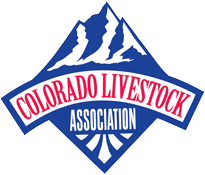On July 6, the Town of Nederland passed A RESOLUTION OF THE BOARD OF TRUSTEES OF NEDERLAND IN SUPPORT OF RECOGNIZING AND IMPLEMENTING THE INHERENT LEGAL RIGHTS OF BOULDER CREEK AND THE BOULDER CREEK WATERSHED. The resolution is effective now.
According to a Denver Post article: “For now, the focus of the nonbinding resolution in Nederland (population 1,600) is simply to spur deeper conversations about effects of population growth and development — and avoid litigation.”
Despite claims the resolution is nonbinding and just a conversation starter, the actual language of the resolution resolution asserts: “federal law, the Colorado Constitution, state law and policy . . . have proven to be very inadequate and . . . in large measure, arise from the faulty underlying legal assumption that the natural world is mere human ‘property’ . . . The resulting environmental exploitation has led to the current multi-faceted environmental crisis which is so severe that it threatens to end all life on Earth as we know it.”
The scope of the resolution extends beyond the boundaries of the town. It states that Boulder Creek “and its encompassing Watershed, and the living other things existing naturally therein, exist and function as an integrated and interdependent system of natural communities and are therefore understood, respected, and recognized in this Resolution as a living entity, possessing fundamental and inalienable rights.”
The resolution commits the Town to:
Include Rights of Nature as a primary consideration in all Town actions and decisions that concern the Creek and Watershed, including actions and decisions about water quality, water quantity, biodiversity, and ecosystem health, and other matters that impact them.
Develop, implement, and enforce laws, policies, programs, best practices, and other measures as are necessary to effectuate the rights of the Creek and Watershed enumerated in this Resolution to ensure that Nature and current and future generations of humans thrive together in harmony within the Town.
The intent of the Board of Trustees extends well beyond purely local matters and contains a call for State-Level support for the Rights of Creeks and Watersheds. “In order to fully effectuate the purposes of this Resolution, the Town’s residents call upon the State of Colorado to recognize the Rights of Nature and create a statewide commission to make recommendations on how to best integrate Rights of Nature and into those elements of Colorado law and governance that concern the health of Creeks and watersheds within the state, including consideration of new state policies, laws, or constitutional amendments that would enable full implementation the rights of Creeks and watersheds.”
“This may become a national movement. We’re at a very early stage, just getting off the ground with this,” said Nederland trustee Alan Apt, a retired publisher and former Fort Collins councilman who led the local effort.”
The resolution was developed through conversations between Alan Apt and Gary Wockner who has given presentations to Town Advisory Boards and the Board of Trustees. Helping lead the effort is the Earth Law Center who, along with Save the Colorado, is targeting Boulder County in a campaign that seeks “to establish legal rights including the ability to flow and to be pollution-free. It also seeks the right to restoration. The Boulder Creek Watershed would also have one or more legal guardians that enforce its rights and interests.”
In addition to establishing legal rights of nature related to future actions, Mr. Wockner is now advocating for reparations for past actions. See recent editorial in the Colorado Sun: Ecological Reparations Opinion. “Enacting “impact fees” on water users is a type of ecological reparation that makes sense in the Western U.S., where the vast majority of water is diverted from rivers and streams, causing massive environmental damage.”
The Colorado Water Stewardship Project will prepare more information with a deeper discussion to follow. Attached are:
Nederland Rights of Nature Resolution
Denver Post Article
Gary Wockner’s presentation to Nederland
Source: Colorado Water Congress
